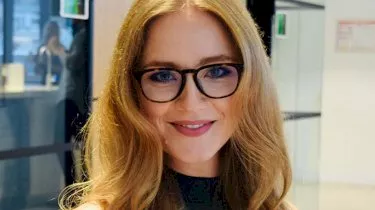Retirement
Top FAQs about how to choose a good financial adviser
One of the last taboos in modern society is to discuss the ones and zeros in our bank accounts. As a society, we avoid having that conversation with loved ones, so why should someone discuss their situation with an adviser?
Top FAQs about how to choose a good financial adviser
One of the last taboos in modern society is to discuss the ones and zeros in our bank accounts. As a society, we avoid having that conversation with loved ones, so why should someone discuss their situation with an adviser?

Nest Egg sat with Jessica Brady, co-founder of The Fox and The Hare, to discuss how to choose a financial adviser and the importance of long-term planning.
What is a financial adviser?
According to ASIC, an financial adviser is a person or authorised representative of an organisation licensed by ASIC to provide advice on some or all of these areas: investing, superannuation, retirement planning, estate planning, risk management, insurance and taxation.
What makes a good financial adviser?

“[Someone who is] able to talk to people in terms that makes sense to them. A good adviser will make sure the plan is really understood,” said Ms Brady.
What are the warning signs of a bad financial adviser?
“Someone who doesn’t feel right… Someone who hasn’t asked the right questions and someone who doesn’t explain things clearly but makes you feel intimidated, overwhelmed or confused perhaps is the worst adviser,” explained Ms Brady.
When should I engage a financial adviser?
One in three Australians wakes up feeling stressed about their financial situation and almost half of Australians do not have very much in savings, according to Ms Brady. With this, the sooner an individual seeks out financial advisers the better, regardless of their current financial situation.
“What we know is people tend not to get financial advice until really close to retirement, and [they] have lost the beauty which is time,” said Ms Brady.
What questions should I ask?
The most important part of a financial adviser’s role is to openly and honestly communicate the long-term strategy. It is important that both the financial adviser is aware of the goals of the client and that the client completely understands the advice they are being presented.
“If you don’t understand something, you must ask questions. If something doesn’t make sense to you and is put in front of you from an advice perspective, do not sign off on that advice until you ultimately understand what it is and why it makes sense for you… There’s no silly questions when it comes to financial advice,” said Ms Brady.
How long should I keep a financial adviser?
The goal of financial advisers is to match the planning of its consumers, whether that is an investor who wants to purchase a property 12 months down the track or a 25-year-old who wants to plan for retirement. With this, a good adviser will match the time frame and present a range of options to help their client achieve a goal, according to Ms Brady.
“It depends on the goal of the client. If someone wants to buy a property in the short term or if someone has really long-term aspiration or superannuation for a younger Australian, what we do as advisers is profile the goal and work out what’s the time horizon of the goal and how much money is required,” said Ms Brady.
“We shouldn’t just do one risk profile for a person in totality because people have got lots of different goals that require different strategies to achieve them, that they should have simultaneously in my view,” said Ms Brady.
What's your final advice?
Ms Brady believes it is vital to make sure the client knows that they are in control and that they sign off on all deals. Clients should trust the adviser and discuss the pros and cons of how the strategy could work, but ultimately need to make the financial decision.
“At the end of the day, if something goes terribly wrong, it’s your money that is going to be impacted,”
About the author

About the author


Retirement Planning
Majority of Australians still unsure about their retirement prospects
A recent survey conducted by MFS Investment Management® has shed light on the ongoing uncertainty faced by many Australians regarding their retirement plans. Despite a slight increase in confidence ...Read more

Retirement Planning
Wage growth steadies as businesses navigate economic challenges
In a sign that the Australian labour market may be finding equilibrium, wage growth has stabilised this quarter, according to Employment Hero's latest data. This development comes as employers ...Read more

Retirement Planning
Simplified retirement advice: Key to overcoming behavioural biases, experts say
In a bid to enhance retirement outcomes for Australians, a recent whitepaper by Industry Fund Services, in collaboration with Challenger, has highlighted the importance of simplifying retirement ...Read more

Retirement Planning
Rest launches Retire Ready digital experience to empower members approaching retirement
Rest, one of Australia’s largest profit-to-member superannuation funds, has unveiled a new digital experience aimed at making retirement preparation simpler and more personalised for its members. Read more

Retirement Planning
New Framework Aims to Bridge Australia’s Financial Advice Gap
A ground-breaking framework introduced by the Actuaries Institute promises to revolutionise how Australians access financial support, potentially transforming the financial wellbeing of millionsRead more

Retirement Planning
The downsizer dividend: how Australia’s ageing shift will reshape property, finance and AI strategy
Downsizing is moving from a personal milestone to a system-level lever for Australia’s housing market. As policymakers court reforms and agents eye fresh listings, the real profit pools will accrue to ...Read more

Retirement Planning
Half of Australians financially insecure about retirement as AMP launches new initiative
In a significant move aimed at addressing the retirement concerns of Australians, AMP has unveiled the Retirement Confidence Pulse, a national barometer designed to gauge the financial confidence of ...Read more

Retirement Planning
North introduces Grow to expand Australia's financial advice footprint
In a bid to bridge the gap between the demand for financial advice and its accessibility, North, a prominent platform for superannuation and retirement in Australia, has launched an innovative ...Read more

Retirement Planning
Majority of Australians still unsure about their retirement prospects
A recent survey conducted by MFS Investment Management® has shed light on the ongoing uncertainty faced by many Australians regarding their retirement plans. Despite a slight increase in confidence ...Read more

Retirement Planning
Wage growth steadies as businesses navigate economic challenges
In a sign that the Australian labour market may be finding equilibrium, wage growth has stabilised this quarter, according to Employment Hero's latest data. This development comes as employers ...Read more

Retirement Planning
Simplified retirement advice: Key to overcoming behavioural biases, experts say
In a bid to enhance retirement outcomes for Australians, a recent whitepaper by Industry Fund Services, in collaboration with Challenger, has highlighted the importance of simplifying retirement ...Read more

Retirement Planning
Rest launches Retire Ready digital experience to empower members approaching retirement
Rest, one of Australia’s largest profit-to-member superannuation funds, has unveiled a new digital experience aimed at making retirement preparation simpler and more personalised for its members. Read more

Retirement Planning
New Framework Aims to Bridge Australia’s Financial Advice Gap
A ground-breaking framework introduced by the Actuaries Institute promises to revolutionise how Australians access financial support, potentially transforming the financial wellbeing of millionsRead more

Retirement Planning
The downsizer dividend: how Australia’s ageing shift will reshape property, finance and AI strategy
Downsizing is moving from a personal milestone to a system-level lever for Australia’s housing market. As policymakers court reforms and agents eye fresh listings, the real profit pools will accrue to ...Read more

Retirement Planning
Half of Australians financially insecure about retirement as AMP launches new initiative
In a significant move aimed at addressing the retirement concerns of Australians, AMP has unveiled the Retirement Confidence Pulse, a national barometer designed to gauge the financial confidence of ...Read more

Retirement Planning
North introduces Grow to expand Australia's financial advice footprint
In a bid to bridge the gap between the demand for financial advice and its accessibility, North, a prominent platform for superannuation and retirement in Australia, has launched an innovative ...Read more








